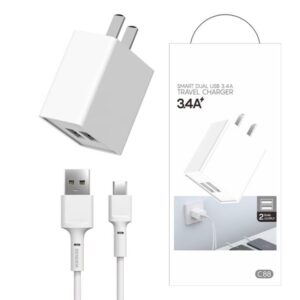A small business owner focuses on growing a business. One of the best ways to ensure long-term growth is to buy real estate, renovate an existing property to keep it in good shape or refinance a real estate debt.
However, the procedure of getting a commercial real estate loan is different from that of a primary residence. This article outlines the process of getting a commercial real estate loan for your enterprise. So, if you are thinking about getting one, keep on reading.
How to Get a Commercial Real Estate Loan
These types of loans are given to businesses that want to buy or renovate a property that generates revenue for the company. It could also be given towards refinancing the debt on an existing property.
Although the commercial real estate loan serves the same purpose as a conventional mortgage loan, there are a few crucial differences that small business owners should know.
Loan-to-Value Ratio
The Loan to Value Ratio, which is also referred to as LTV, is a metric that lenders use to determine the amount of loan they can give to a business for funding a real estate project. This metric is computed as a percentage ratio of the loan amount divided by the property value.
For conventional mortgage loans, an LTV of 97% can qualify you for up to 100% funding in a first-time homebuyer program or certain government-insured loans. But this is not the case with commercial real estate loans. According to the National Association of Realtors (NAR), lenders prefer to fund projects with an LTV ranging from 75% to 80%.
NAR also revealed that not all commercial real estate lenders use the LTV metric as a basis for approving loans for businesses. While 60% relies on the LVT metric, the remaining 40% uses the debt service coverage ratio (DSCR) as a criterion.
The DSCR parameter allows lenders to evaluate the capacity of a business to fulfill its debt obligations based on its existing cash flow. The DSCR value is the ratio of the annual net operating income divided by the debt liabilities for the year. NAR affirmed that the average DSCR is 1.25.
Personal Guaranty and Non-Recourse Loans.
Both mortgage and commercial property lenders will always use the property as a guaranty for the load given. In specific scenarios, the lenders will also demand a personal guarantee.
The lenders usually check the financial records of businesses before approving a commercial real estate loan. That is why relatively new firms may not qualify. In such scenarios, lenders resort to the option of requesting the business owner to guarantee the loan. A personal guaranty means that the guarantor takes over the loan liability if the business can no longer repay the debt.
In other cases, the lenders will simply use the property as a guaranty for the loan without requesting a personal bond. Such types of loans are also called a non-recourse loan because the lender cannot hold the business owner(s) liable for the loan repayment.
The Different Type of Commercial Real Estate Loans
Business owners have the option of choosing from three main types of commercial real estate loans. These options are SBA loans, permanent loans, and bridge loans.
Permanent Loans
The first loan for the funding of a commercial property is called the permanent loan. It is more like a conventional mortgage loan. All commercial lenders give out permanent loans based on repayment schedules of at least five years. The loan is not meant for short-term financing.
SBA Loans
The commercial real estate loans that the United States Small Business Administration guarantees are called SBA real estate loans. This commercial real estate financing scheme offers two loan programs called SBA 7a and SBA 504 Loans. An important clause is that real estate investors are not entitled to these loans.
SBA 7a Loans
The SBA 7a Loans scheme is more or less liberal, it gives businesses some level of freedom to determine how they want to use the funds. Besides real estate, businesses can access this loan for other business purposes, such as buying inventory or working capital.
This type of loan is accessible through a single private commercial lender. Most lenders demand a down payment of at least 10% depending on the circumstances and the policy of the lender. About 85% of these loans are guaranteed by SBA.
SBA 504 Loans
The SBA 504 loan scheme demands that businesses use the fund to buy a commercial real estate, renovate an existing property, or to refinance qualified real estate debts. Other acceptable uses of the fund include the purchase of equipment or machinery.
This loan is jointly disbursed by two lenders, which are a private commercial lender and a certified development company (CDC). While the private commercial lender proves 50% of the project cost, CDC disburses 40%, the entire loan is guaranteed by SBA. Note that the business owner is required to provide the remaining 10%, which serves as the down payment. The down payment might be higher in certain circumstances.
Bridge loans
The bridge loan is another type of real estate loan that is offered on a short-term basis. The repayment period ranges from six months to three years. This type of loan is useful for a small business owner that needs urgent funds pending approval for long-term financing or refinance loan.
Retail real estate investors also use this loan for short-term investment in property flipping business that can yield returns quickly.
Commercial Real Estate Requirements
Although various lenders have their unique requirements for approving real estate loans, some vital questions are applicable in all scenarios. For instance, you should know the financial obligations before approval, as well as the down payment you have to make.
Most commercial real estate lenders will request for at least, 20% down payment. However, you may be required to provide a higher amount based on factors such as your lender’s policy or your business financials. The SBA loan that requires at least a 10% down payment is an exception.
A higher down payment can be beneficial to a business since it results in a lower interest rate and lowers monthly down payment.
The lender’s policy is crucial for setting the business financials requirements. For instance, SBA 504 Loans demands that the net worth of eligible businesses must be less than $15 million. Also, the income after tax over the last two years must not exceed $5 million.
However, commercial lenders may have unique eligibility requirements. A typical example is requesting that the present owner runs the business for at least two years and have yearly revenue of at least 300,000.
You must consider the various loan requirements while shopping for lenders and crosscheck your business data to see if you qualify. Also, it is best to research both traditional lenders as well as online commercial lenders. However, the interest rates of online lenders are higher and have strict requirements for approval.
Commercial Real Estate Loan Repayments.
The payment terms for mortgage loans are flexible and most homebuyers opt for the 30-year fixed-rate mortgage. But this is not the case with commercial real estate loans, which offers payment plans between 5-20 years period. They also provide short term loans payable within a year.
More often than not, the amortization schedule for real estate loans does not align with the repayment term. For instance, in scenarios where the repayment term offers the option of 5, 10, or 15 years, the amortization schedule can be up to 25 years.
In such cases, you are not mandated to make full payment when the payment term expires. Your business will simply make a balloon payment once to term end to offset the outstanding balance. However, if you do not have the funds to make the balloon payment, you can get another commercial real estate loan to refinance the outstanding debt.
If you do an in-depth search specifically for lenders that offer full amortization, you will surely come up with a few. Take the time to search if this feature is important to you.
Bear in mind that commercial lenders will not allow you to offset your loan before the scheduled timeline without imposing a fee or penalty. Here are a few of them.
Prepayment penalty: This amount is usually calculated as a percentage of the outstanding balance the amortization schedule reflects when you decide to settle your debt early.
Interest Guaranty: This criterion guarantees the lender a predefined amount in interest regardless of the time you settle the debt. For instance, a loan might guaranty 10% interest for the first 10 years and 5% prepayment penalty after the 10 years elapsed.
Lockout: This clause forbids the borrower from paying the debt before the scheduled timeline. Lockouts are commonly set to five years.
Defeasance: With this procedure, a small business owner can provide a U.S Treasury-backed security as a replacement for the loan collateral. Thereby exiting the real estate loan. However, it is required that the security generate enough income to cover the outstanding loan principal and interest. Some lenders will also impose penalties in such instances,
Interest Rates and Fees for Commercial Real Estate.
The interest rate of commercial real estate loans is higher than mortgage loans. NAR revealed that the rates range from 5% to 7% per annum. In some cases, lenders may offer a lower interest rate based on the structure, loan type and business financials. A typical example is SBA loans that can offer interest rates below 4% for qualified businesses.
Bear in mind that some closing costs such as origination fees, appraisal fees, legal fees, and the likes might be applicable. These fees can range between 1% to 2% of the loan amount, this figure is lower than what is obtainable with a mortgage loan. With SBA loans, you will be required to pay a guaranty fee, which can be up to 3.75% of the guaranteed part of the loan.
It is important to take repayment penalties and other applicable fees into account while shopping for a lender. These are small factors that make a big difference in the amount you end up paying for a commercial real estate loan. That is why you should exercise due diligence; read the fine lines to know applicable charges if you offset your loan early.
However, unlike conventional mortgage loans, commercial real estate loans do not demand that you have private mortgage insurance. At least, you don’t have to worry about ongoing insurance premiums.
The Final Note
Small business owners have the opportunity to grow and scale their business with commercial real estate loans. Although there are many available options, do your homework so you can select the right loan from the lender with the best offer.
The payment terms of commercial real estate loans are also critical. A loan that carries a balloon payment may have low monthly repayments, but offsetting the final payment can be a headache. Especially when you don’t have the funds and cannot access another loan to refinance the outstanding debt.
Finally, make sure you compare all the terms while shopping for a commercial real estate loan. Don’t focus on the interest rate and the repayment terms alone. Inspect the fine prints and pay particular attention to all applicable fees and penalties. Also, check to see if the loan requires a personal guaranty.
There is no such loan that is perfect for everyone. That is why you should take the time to find the loan that works for you and your business. You can streamline such loans when you research and compare available options. Nav’s Business Loan Builder is an excellent tool for researching lenders for your commercial real estate loan.






